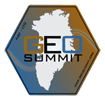| PI | Institute/Department | |
|---|---|---|
| Virginia, Ross |
Dartmouth College, Institute of Arctic Studies
|
| Program Manager | Funding Agency | |
|---|---|---|
| Rom, Elizabeth |
NSF, Office of Polar Programs
|
Through this grant, Dartmouth will lead the U.S. contributions to the Joint Science Education Project (JSEP) for the next three years (starting in February 2015). The leadership role will include: sending a small team of graduate student and postdoctoral researchers with polar field experience, along with a Dartmouth faculty member, to Greenland to lead field science education in the JSEP programs; continued training of Dartmouth graduate students and postdoctoral researchers in cross-cultural science communication to advance outreach in Greenland and share this training more broadly with the Dartmouth community; hosting planning meetings and workshops to design the curriculum for Science and Education Week and to help coordinate efforts by all parties engaged in JSEP; working with our partners in Greenland to increase the visibility of JSEP in Greenland; and sharing and assessing the results of our work through presentations in education-focused symposia at national meetings and publications in scholarly journals. As an outcome of the NSF Integrative Graduate Education and Research Traineeship grant to Dartmouth to develop the Polar Environmental Change program, these researchers have many years of experience with science, outreach, and the logistics of working in Kangerlussuaq and at Summit, Greenland, and the students, postdocs, and faculty have contributed significantly to the JSEP programs since 2011. In addition, they have a strong network of colleagues and scholars in Greenland that can continue to help us increase participation and engagement of students and teachers from Greenland. A Dartmouth-JSEP partnership is a natural and synergistic collaborative opportunity to provide significant international Arctic science education and outreach to students from Greenland, Denmark, and the U.S., with broader impacts for international communities of stakeholders, future leaders, and polar scientists.
This grant supports the Joint Science Education Project (JSEP) program in Greenland. The Joint Committee, a high-level forum involving the Greenlandic, Danish and U.S. governments, initiated JSEP in 2007 to educate an international community of high school students and teachers from each of the three nations about the causes and consequences of rapid environmental change. The goals of JSEP include inspiring the next generation of polar scientists, building strong networks of students and teachers among the three countries, and providing an opportunity to practice language and communication skills by taking students from the three nations to Greenland to observe polar science in action. From 2015 to 2017, Dartmouth JSEP team participants will visit Greenland each summer to engage in the Kangerlussuaq Science Field School and lead Science and Education week at Summit Station. The PI and postdoctoral fellow will also travel to Nuuk to advance partnerships with Greenlandic institutions. The 2016 JSEP effort features two field visits: a spring preparatory trip, and the June summer intensive. In early June, graduate students will conduct research in the Kangerlussuaq area while camping in the sand dune area along the road. These grad students will lead some of the activities during the Field School portion of the project, which commences in late June when the international group assembles in Kangerlussuaq, the U.S. participants arriving via the ANG logistics chain. At the start of Science Education (SciEd) week, the high school group will camp for 2 nights near the Russell Glacier before travelling to Summit Station via LC-130. At Summit, two Dartmouth grad students plus teachers from all 3 nations will lead activities for the students, to include visualizing snow layer differences between summer and winter deposition bands in a backlit chamber. When the Summit visit is over, the JSEP participants will return to Kangerlussuaq and all will travel homeward. The U.S. participants will fly via the ANG to Scotia, New York, and commercial air to their points of origin. The 2017 JSEP effort features two field sessions: a spring preparatory trip, and the July summer intensive. In early May/June, two co-PIs and five graduate/undergraduate students will conduct research in the Kangerlussuaq area while camping in the sand dune area along the road. These grad students will lead some of the activities during the Field School portion of the project, which commences in early July when the international group assembles in Kangerlussuaq, the U.S. participants arriving via Commercial Air.
For the May/June trip in 2017, CPS will provide limited use of CPS inventory, comms and safety gear and coordination of ANG travel. All other support for the first session, including KISS user days, meals and truck rental will be paid through the grant will be organized and paid through the grant.
| Season | Field Site | Date In | Date Out | #People |
|---|---|---|---|---|
|
2015
|
Greenland - Summit
|
|
|
25
|
|
2016
|
Greenland - Summit
|
|
|
24
|
|
2017
|
Greenland - Summit
|
|
|
26
|
